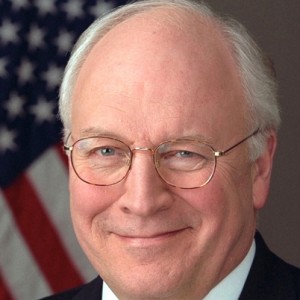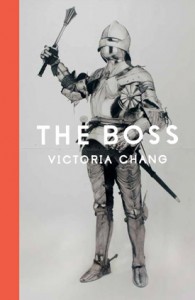Friday Finds for Writers
 Writing-related resources, news, and reflections to enjoy over the weekend.
Writing-related resources, news, and reflections to enjoy over the weekend.
Have a great weekend, everyone.
 Writing-related resources, news, and reflections to enjoy over the weekend.
Writing-related resources, news, and reflections to enjoy over the weekend.
Have a great weekend, everyone.
Monday brings the weekly batch of no-fee competitions/contests, paying submission calls, and jobs for those of us who write (especially those of us who write fiction, poetry, and creative nonfiction). (more…)

Another Sunday in which I participate in David Abrams’s “Sunday Sentence” project, which asks others to share the best sentence(s) we’ve read during the past week, “out of context and without commentary.”
“What do I pretend to know about love, its vagaries and mysteries, its inscrutability, its insistent pull?”
From Celeste Ng’s marvelous story “The Kind of Man,” on Five Chapters. (Wondering why I’ve included a photo of Dick Cheney here? Go read the story!)
 Thanks in part to the writers I follow on Twitter, the past week has brought plenty of references and reactions to “Sandwich Girl” and a certain Canadian author/professor. (Nope, not going to link to them.)
Thanks in part to the writers I follow on Twitter, the past week has brought plenty of references and reactions to “Sandwich Girl” and a certain Canadian author/professor. (Nope, not going to link to them.)
But I wish that I’d seen far more references to something else I discovered last week on Twitter (h/t @LMecham): a terrific and utterly refreshing interview on The Rumpus instead. For me, at any rate, Abigail Welhouse’s interview with Victoria Chang on the occasion of the publication of Chang’s third book of poetry addressed far more personally urgent and resonant concerns that I don’t see articulated often enough.
I encourage you to read the whole thing, but for the purposes of this post, I’ll share some selected quotations:
Abigail Welhouse (AW): “In my most perverse fantasies, everyone who isn’t me writes for hours a day….Also, they do all this while I’m at my office.”
AW: “There are narratives…that I hear repeated over and over about what kind of life constitutes ‘a writer’s life’—and working in an office full-time usually isn’t included in these stories.”
AW: “I recently attended a panel at the Slice Magazine Literary Writers’ Conference that ambitiously billed itself as ‘Life After An MFA’….The panel…consisted of five writers whose stories shared many similarities. According to the represented stories at the panel, the normal ‘life after an MFA’ seems to be this: write fiction or memoir, live in New York, and teach writing part-time.”
AW: “As a fellow poet who works in an office, I wondered how [Chang’s] full-time office work influences her writing—and I also hoped to figure out the secret to managing to write three books of poetry while working nine-to-five.”
Victoria Chang (VC): “I’ve always just liked writing poetry, but it’s much later that I’ve discovered that there’s this whole poetry world out there, that you almost have to be accepted into, like this little club. And it’s based on art, whether people like your work or not, but it’s also based on a lot of other things—geography, who you happen to connect with and where they sit in that ladder—and all of that felt really isolating and disheartening to me when I figured it out.”
AW: “Living in New York, I notice how easy it is to be doing what could be called ‘a writer’s life,’ while actually doing very little writing. Because you’re going to events, you’re talking to other writers, you’re doing all of this other stuff.”
VC: “Sometimes I wonder, though—I have friends that sit around and just write all day. And I think it’s the coolest thing. Imagine that: while they’re writing, and thinking, and dreaming, I’m on the phone constantly, and working, and running around like a maniac…and this or that. I don’t get that time, at all. But I wonder if that kind of lifestyle makes me—for me—a different kind of writer. I know I wouldn’t have been able to write any of these kinds of poems if I didn’t lead the life I led.”
VC: “I feel like I give myself all day long to other people and other things, and I still seem like I have something to write once in awhile. Not often, though. I haven’t written anything since this book was written two years ago, short of editing those poems here and there. That’s a new thing for me, because I used to think, I have to write every day.”
VC: “As a poet, I don’t sit around and say, ‘Oh, I want to write a book and get it published in the world.’ Anymore. I used to, when I was younger, when my goal in life was just to publish a book. As I published books, I realized, that’s not really what I want. I don’t care about the books as much anymore. I just want to write poetry.”
VC: “I was telling the poetry editor at McSweeney’s that if I never wrote a poem again, and never published another book, I really could care less. That’s just the phase of life that I’m in. I realize so much that it doesn’t matter. Yet, I’ve spent my whole life trying to do all this. Now that I feel like I’ve done these books and stuff, it just doesn’t appeal to me anymore. I could be one of those candidates that drops off the poetry world, and you never see me again, and I wouldn’t mind. Or, I could come back and write something in two years, or ten years.”
VC: “I’m not sure that I love being around [“the whole poetry world”] or in that. I love being part of poetry conversations. I love talking about what I’ve read. I regularly talk to poets, and it’s just like, ‘Have you read this?’ Me, being as busy as I am, I’ve read a lot more than most of the people that I know, except for one of my really close friends reads way more than I do. But, in general, I find that poets spend a lot of time thinking about themselves, and not a lot of time thinking about other poets, or other poetry. Unless they think about how it affects them, or how it could impact them.”
VC: “I love when I meet generous poets, and generous meaning nice people, who give to the poetry community, who do interviews, read other people’s books, and talk about them, spread the…love, I guess. That means a lot to me. It’s surprising—you don’t meet a lot of people like that. For the most part, it’s a world of artists that are very in their own heads.”
And a few reflections of my own: (more…)
 Writing-related resources, news, and reflections to enjoy over the weekend.
Writing-related resources, news, and reflections to enjoy over the weekend.
Happy weekend, everyone!